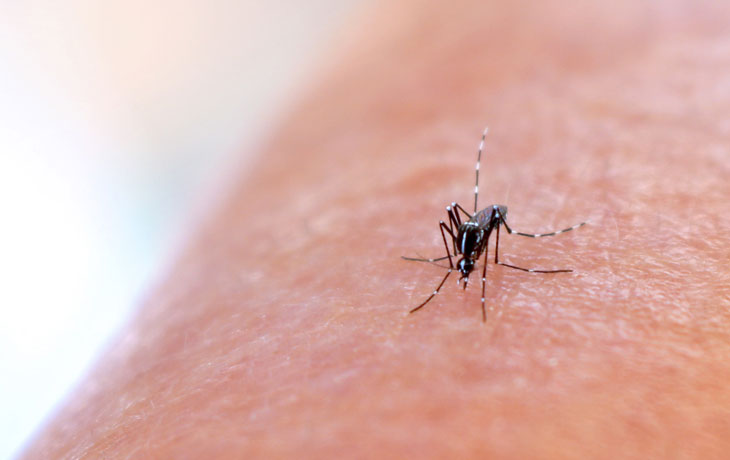
A bite by an Aedes mosquito, a species capable of transmitting multiple diseases. Image provided by NIAID
Selectively-bred mosquitoes have been tested in the United States and overseas as a solution to control the spread of Zika, dengue, and other mosquito-borne diseases. One method breeds Aedes aegypti mosquitoes, which can transmit dengue, to carry Wolbachia—an insect-borne bacterium with natural virus-blocking properties. But this promising method of pest control has a catch: it is significantly affected by heat.
A new study published in Nature Climate Change predicts that mosquito populations carrying the wMel strain of Wolbachia will remain stable for the next 30 years. Beyond that, the study says, the accelerated temperature increases expected under climate change could adversely affect the helpful bacteria, permitting the continued spread of dengue.
The research was led by graduate student Váleri Vásquez and professor Lara Kueppers, both in the Energy and Resources Group, and is the first to investigate whether anthropogenic climate change could jeopardize the use of this important vector control technology. Vásquez, Kueppers, and their co-authors selected two locations where wMel-carrying mosquitoes are currently being used or tested for disease prevention—Cairns, Australia, and Nha Trang, Vietnam—and computationally modeled how those insect populations might respond as each region warms.
According to the study, which used laboratory data to calibrate modeled biological responses, the wMel strain begins to disappear from the mosquito population as average daily temperatures surpass 95 degrees. Results show that wMel-carrying mosquitoes are likely to survive warming in Australia through the 2030s, but that the hotter months of 2050—when heatwaves are more common—could lead to a notable decline in the wMel population. The concentration of bacterium is expected to plummet in Vietnam during the 2050s, when heatwaves in that location could exceed three weeks. The authors conclude that operational changes, including more frequent releases of wMel-carrying Aedes aegypti, may be one important means of adapting this technology to future climate change.
Additional co-authors include Gordana Rašić, a senior research officer at the QIMR Berghofer Medical Research Institute in Australia, and John Marshall, a professor in residence of Biostatistics and Epidemiology at the UC Berkeley School of Public Health.
Read More
- wMel replacement of dengue-competent mosquitoes is robust to near-term climate change (Nature Climate Change)
- Susceptibility of Wolbachia mosquito control to temperature shifts (Nature Climate Change - Subscription Required)
